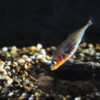Rising oceanic carbon dioxide (CO2) levels are disrupting a key brain receptor in fish, causing dramatic changes in their brain chemistry, behavior and sensory abilities, say Australian researchers from the ARC Centre of Excellence for Coral Reef Studies. Their work appears in the journal Nature Climate Change. Around 2.3 billion tons of human CO2emissions dissolve […]








